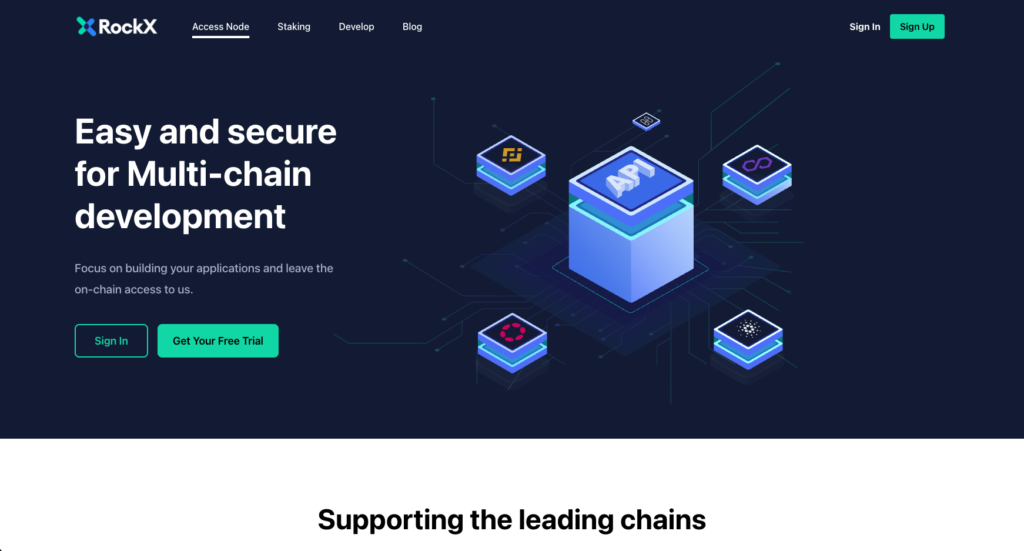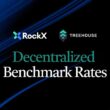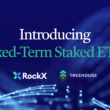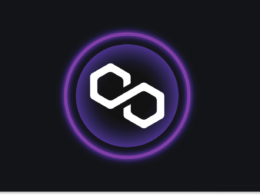A blockchain is built on peer-to-peer (P2P) technology. It is a distributed ledger where all participants keep a complete copy of all transactions that have happened. These participants do so by running what’s called a “node”. Access nodes allow people to interact with the blockchain, and access node providers further simplifies that process.
There are various types of blockchain nodes, but the primary type of node people think of is a full archival node. These nodes keep a complete copy of every transaction that has happened on the blockchain. Developers trying to build blockchain-based applications need to have access to the blockchain for a variety of reasons. For example, accessing user wallets or on-chain data. Even those who are not developers might need on-chain data for understanding existing trends in the space or to make trading decisions.
What Does an Access Node Do?

There are various kinds of nodes and differences in the types of nodes required for different blockchains, but we will focus on access nodes to Proof-of-Stake (PoS) blockchains.
In general, nodes communicate with one another to verify information and transactions happening on the blockchain. Some nodes keep a full copy of all transactions, while others only keep transaction records of the most recent transactions. Others are responsible for allowing new nodes into the network. On PoS chains, validator nodes are also responsible for ensuring information on the blockchain is accurate and creating new blocks. In return, nodes receive transaction fees as rewards.
People want to access on-chain data for many reasons. Most often, however, they are developers trying to build a protocol on the blockchain. They need these nodes in order to allow users to interact with their protocol, or otherwise access data on the blockchain.
They may try to set up their own nodes, but it can cost some time and money to get it set up, test, and maintain. We have a quick guide on how to set up your own blockchain node and some potential challenges here.
What Are Access Node Service Providers?

It is entirely possible to install and run access nodes by yourself. However, depending on how much data you need, it can be a tedious task. Inexperienced developers in this field may run into many problems that will result in delays in the launch of their project, or slow reaction times to including new chains that their protocol may want to support.
An access node service provider allows developers to use already-established nodes on the blockchain of their choice. This allows developers or builders in Web3 to access on-chain data whenever necessary, and run as many queries as they may need for their project to run. RockX, for instance, provides access to major PoS blockchains such as Cronos, Solana, Polkadot, and more for free, limited to 100,000 requests daily. Paid subscriptions are available for those who might need more.
Paying for an access node will save builders a significant amount of time in building their own nodes, as they can focus entirely on building the protocol itself. Eliminating the need to purchase and maintain the equipment needed to set up and run the node is also cost-efficient.
Choosing Between Access Node Providers

Understandably, choosing an access node provider might be a daunting task. Developers need to ensure that the nodes they work with are reliable, user-friendly, and most importantly, secure. Here are some things to consider when deciding on an access node provider:
- Available chains
Check if the provider supports the chains you require access to. It also helps if there is a free trial where you can explore the product to see if it is user-friendly and transparent.
- Customer support
Access nodes are crucial to the performance of blockchain-based protocols. Having someone to contact the moment anything goes awry is extremely important. A responsive team is crucial in case of any downtime.
- Historical node performance and blockchain experience
Is this company established in the blockchain space? Do they offer other blockchain-based services and if so, what is their historical performance like? As mentioned, it’s vital to a protocol to have nodes that run smoothly, so be thorough when vetting the performance of an access node provider.
- Security
How quick is the company to implement security upgrades? Needless to say, if the security of a node is compromised, the consequences can be far-reaching.
Speak to the team behind the access nodes to learn more about the company, its efficiency, and its dedication to security. With so many exploits happening in the blockchain space recently, it is certainly better to be safe than sorry.
Get $100 to Try Out RockX’s Access Node Service

To support Web3 builders, RockX is currently giving away $100 credits to anyone who might need an access node service from now until 16 June 2022, Thursday.
Established in 2019, RockX has been validating for major PoS blockchains for several years with a consistently good performance. Furthermore, our team is available 24/7 on Discord for any queries you may have. We can also be reached via Twitter, email, or the chatbot on our website.









